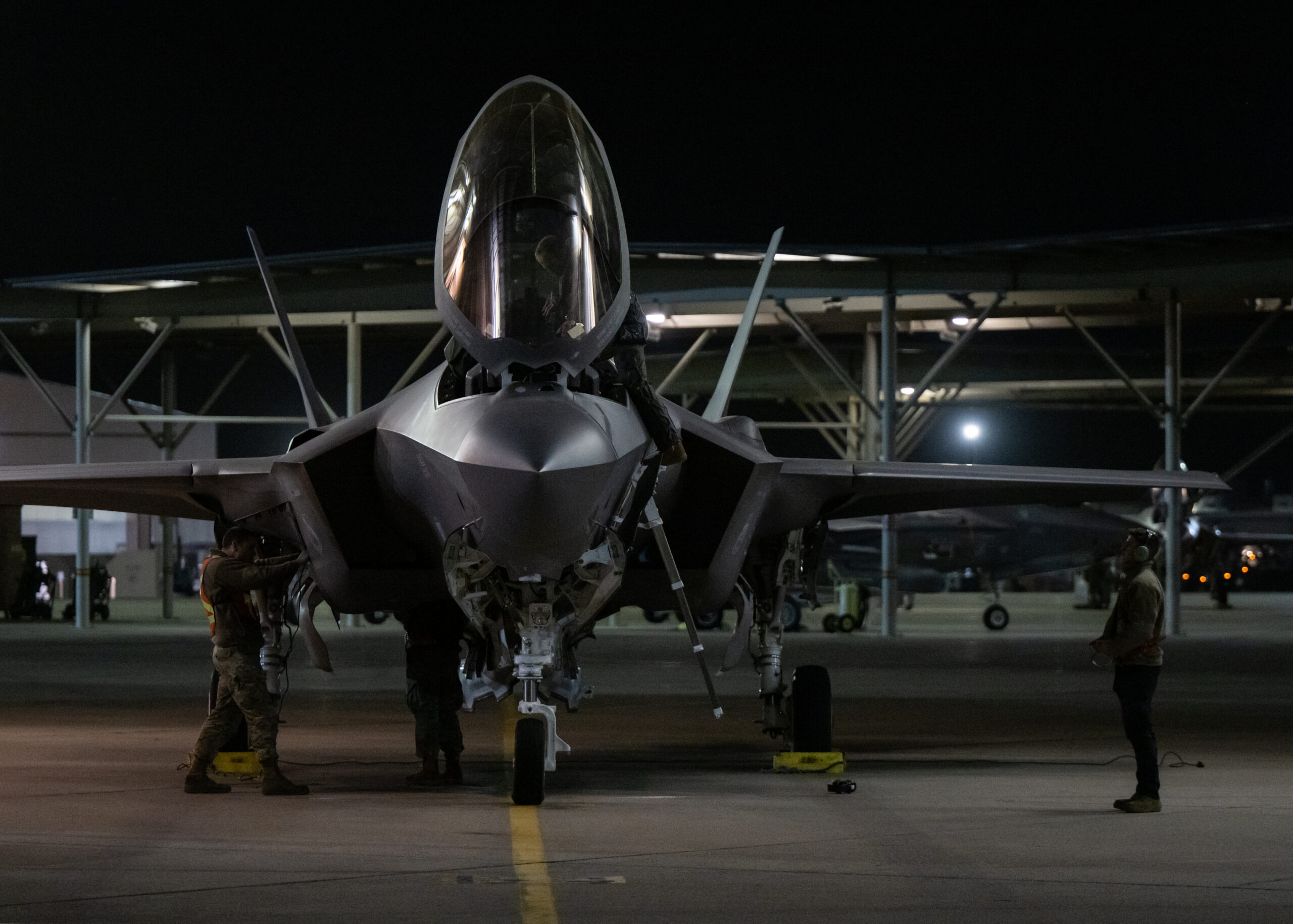
Airmen from the 388th Fighter Wing prepare to launch out an F-35A from Hill Air Force Base, Utah, Feb. 14, 2022. (U.S. Air Force/Capt. Kip Sumner)
WASHINGTON: In a major reversal seemingly driven by the crisis in Ukraine, the German defense ministry announced this morning that it will buy the F-35 Joint Strike Fighter to replace a portion of its aging Panavia Tornado fighters.
The decision is a major win for F-35 manufacturer Lockheed Martin, as Germany had ruled the F-35 out of the Tornado replacement contest in 2019. Instead, defense officials had floated the idea of replacing the Tornado with a mix of Eurofighter Typhoons and Boeing F/A-18E/F Super Hornets, the latter of which would be outfitted with equipment making it capable of carrying B61 nuclear bombs.
However, the F-35 has come out on top, with Defense Minister Christine Lambrech announcing this morning that Germany would purchase the F-35 for the nuclear sharing mission, replacing its nuclear-capable Tornados by 2030.
Entscheidung zur Tornado-Nachfolge ist getroffen: Mit dem Flugzeugtyp F-35 wird die Aufgabe zur Nuklearen Teilhabe zukünftig gewährleistet bleiben. Ziel ist es, den Tornado bis 2030 zu ersetzen. pic.twitter.com/ItVxXRfjI9
— Verteidigungsministerium (@BMVg_Bundeswehr) March 14, 2022
“The F-35 offers a unique potential for cooperation with our NATO allies and other partners in Europe,” Lambrech said during the news conference this morning, according to German news outlet Deutsche Welle.
As part of a NATO nuclear sharing agreement, Germany has historically kept a portion of its Tornado fleet as “dual capable aircraft” capable of launching both conventional munitions as well as dropping nuclear bombs. Reuters reported that Germany will buy up to 35 JSFs to fill this role.
Lambrech added that Germany would continue to develop the Eurofighter for the electronic warfare role “so that important key technology remains in Germany and in Europe.” It will also continue to develop its sixth-generation Future Combat Air System with France, she said.
Justin Bronk, a technology research fellow at the UK-based Royal United Services Institute, said that Germany’s decision is “very logical”, as a fourth-generation aircraft like the Super Hornet would not be able to penetrate into the airspace of a peer adversary like Russia to drop B61s as the stealthy F-35 can.
However, he noted that the decision is also significant for geopolitical reasons.
“It is indicative of the depths of the political earthquake that has been prompted in Germany by the Russian invasion of Ukraine,” Bronk said.
Previously, “Berlin had not only taken a strong political stance against F-35 and sacked the former head of the Luftwaffe for publicly supporting its acquisition, but had also previously refused to engage with practical discussions of any kind around the operational delivery of the DCA [dual capable aircraft] mission,” he said. “This is a clear sign that all that has now changed.”
The news was cause for celebration for Lockheed Martin, as the F-35 has now won every fighter contest it had entered, with Germany previously standing alone as the sole holdout.
“We are proud of the confidence the German Federal Ministry of Defense and Luftwaffe officials have shown in choosing the F-35,” the company said in a statement. “Lockheed Martin values our strong partnership and history with the German Air Force and looks forward to continuing that partnership.”
In a ‘world first,’ DARPA project demonstrates AI dogfighting in real jet
“The potential for machine learning in aviation, whether military or civil, is enormous,” said Air Force Col. James Valpiani. “And these fundamental questions of how do we do it, how do we do it safely, how do we train them, are the questions that we are trying to get after.”


























